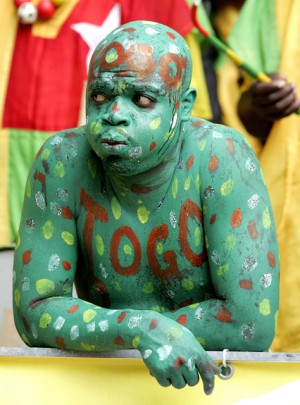It’s one of west Africa’s smaller nations, but Togo goes to the polls today.![]()
Here’s my short capsule description of what to expect from Togo’s elections (from my longer summary of the eight sub-Saharan African nations that are set to vote in national elections in the next nine weeks):
Togo, a small west African nation of 7.15 million people, is scheduled to vote for a new parliament, despite the fact that elections have been cancelled twice — first in October 2012 and again in March 2013. There’s no guarantee that elections this month will actually go forward, either. While the government and opposition have apparently now reached a deal to hold elections later this month, the composition of the electoral commission remains a major open issue.
Togo’s president, Faure Gnassingbé, took office in 2005 with the support of the country’s military following the death of his father, Gnassingbé Eyadéma, who had served as Togo’s president since 1967. Despite winning election in presidential votes in 2005 and 2010, he’s seen as somewhat of an authoritarian leader and his party, the Rassemblement du Peuple Togolais (RPT, Rally for the Togolese People) dominates the unicameral Assemblée nationale, holding 50 out of 81 seats. Unlike its neighbors, there’s neither a Christian nor Muslim majority in Togo – out of every two Togolese adheres to indigenous beliefs, though one-third of its residents are Muslim and one-fifth are Christian.
BBC News reports that the elections are seen as a harbinger of next year’s expected presidential election, but that may be getting a bit too far ahead of getting through elections that have been delayed twice already.
Alexander Noyes argues in allAfrica that the opposition has been hard-pressed to make a full-fledged case, and that the top priority for Togo will be to avoid post-election violence in the event that the results are (or are seen to be) fraudulent:
While the agreement does suggest an improved electoral environment, the last-minute deal leaves the opposition with very limited time to organize a cohesive campaign, and these steps in the right direction will matter little if election results are viewed as fraudulent by the opposition. In this scenario, opposition parties would almost certainly again organize large-scale protests, which would increase the likelihood of electoral violence.
